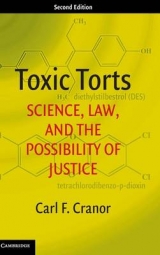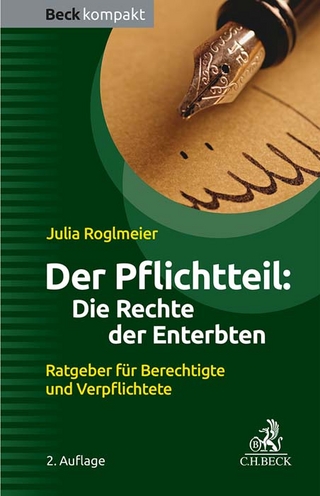
Toxic Torts
Cambridge University Press (Verlag)
978-0-521-86182-3 (ISBN)
- Titel erscheint in neuer Auflage
- Artikel merken
The relationship between science, law and justice has become a pressing issue with US Supreme Court decisions beginning with Daubert v. Merrell-Dow Pharmaceutical. How courts review scientific testimony and its foundation before trial can substantially affect the possibility of justice for persons wrongfully injured by exposure to toxic substances. If courts do not review scientific testimony, they will deny one of the parties the possibility of justice. Even if courts review evidence well, the fact and perception of greater judicial scrutiny increases litigation costs and attorney screening of clients. Mistaken review of scientific evidence can decrease citizen access to the law, increase unfortunate incentives for firms not to test their products, lower deterrence for wrongful conduct and harmful products, and decrease the possibility of justice for citizens injured by toxic substances. This book introduces these issues, reveals the relationships that pose problems, and shows how justice can be denied.
Carl F. Cranor is Professor of Philosophy at the University of California, Riverside. His work focuses on issues that arise in the legal and scientific adjudication of risks from toxic substances and from the new genetic technologies. He has published numerous articles in these fields as well as authoring Regulating Toxic Substances: A Philosophy of Science and the Law (1993), editing Are Genes Us? The Social Consequences of the New Genetics (1994) and co-authoring the US Congress' Office of Technology Assessment report, Identifying and Regulating Carcinogens (1987). His articles have appeared in diverse journals such as The American Philosophical Quarterly, The Yale Law Journal, and the American Journal of Public Health. He is a member of the Center for Progressive Reform, a virtual think tank comprised of academic scholars interested in protecting public health and the environment.
Preface; 1. The veil of science over tort law policy; 2. Legal background; 3. Institutional concerns about the Supreme Court's triology; 4. The science of toxicity and reasoning about causation; 5. Excellent evidence makes bad law: pragmatic barriers to the discovery of harm and fair admissibility decisions; 6. Science and law in conflict; 7. Improving legal protections under Daubert; 8. Is Daubert the solution?; Bibliography; Index.
| Erscheint lt. Verlag | 4.9.2006 |
|---|---|
| Verlagsort | Cambridge |
| Sprache | englisch |
| Maße | 162 x 240 mm |
| Gewicht | 728 g |
| Themenwelt | Recht / Steuern ► Allgemeines / Lexika |
| Recht / Steuern ► EU / Internationales Recht | |
| Recht / Steuern ► Privatrecht / Bürgerliches Recht ► Besonderes Schuldrecht | |
| ISBN-10 | 0-521-86182-9 / 0521861829 |
| ISBN-13 | 978-0-521-86182-3 / 9780521861823 |
| Zustand | Neuware |
| Informationen gemäß Produktsicherheitsverordnung (GPSR) | |
| Haben Sie eine Frage zum Produkt? |
aus dem Bereich



